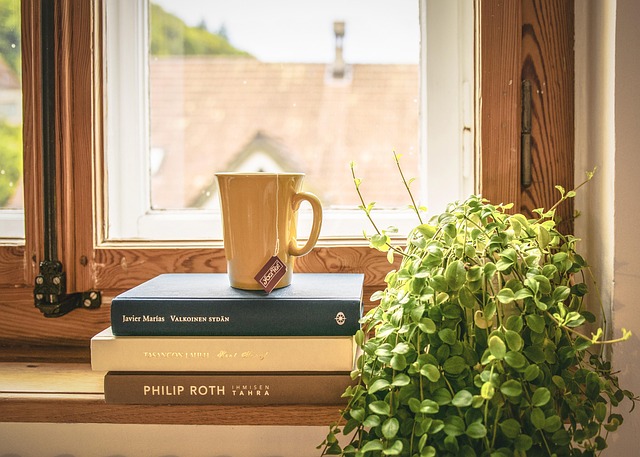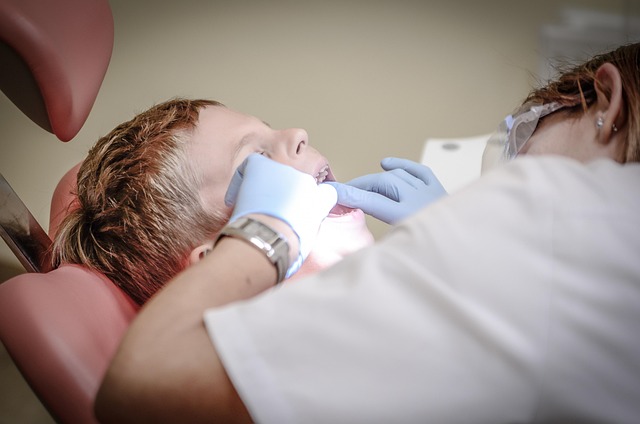Experience Peace of Mind: Free In-Home Care for Port Aransas Seniors Today
Experience the ultimate in senior care with our In-Home Aide service in Port Aransas, Texas. We unde…….
As the global population ages, ensuring the well-being and independence of elderly individuals has become a paramount concern. In response to this growing need, in-home aide services have emerged as a crucial component in supporting seniors in their own communities. This article delves into the intricacies of in-home aid specifically tailored for the elderly in Port Aransas, Texas, exploring its various aspects, benefits, and potential challenges. By examining these elements, we aim to provide valuable insights for families, caregivers, and policymakers seeking to enhance the quality of life for seniors in this vibrant coastal city.
Definition: In-home aide services refer to a range of non-medical assistance programs designed to help elderly individuals age gracefully in their homes. These services cater to various needs, from daily tasks and mobility support to companionship and health monitoring.
In the context of Port Aransas, Texas, these aid programs are tailored to meet the unique challenges faced by an aging population living in a coastal environment. The primary focus is on enhancing senior independence, promoting active lifestyles, and ensuring their safety and well-being within familiar home settings.
Core Components:
Personal Care: This includes assistance with activities of daily living (ADLs) such as bathing, dressing, grooming, medication management, and personal hygiene. Trained aides provide support while maintaining the dignity and independence of seniors.
Mobility Assistance: Aides help elderly individuals with limited mobility navigate their homes safely. This may involve assisting with transfers, providing companionship during walks, or using mobility aids like walkers or wheelchairs.
Meal Preparation and Nutrition: Proper nutrition is vital for senior health. In-home aides can prepare healthy meals, ensuring proper eating habits and addressing any dietary restrictions or nutritional needs.
Housekeeping and Home Management: Regular cleaning, laundry, grocery shopping, and other household tasks are made easier with in-home aid. Aides ensure a clean and safe living environment, freeing seniors from these demanding chores.
Companionship and Social Engagement: Loneliness is a significant concern for many elderly individuals. In-home aides provide companionship, engage in meaningful conversations, and encourage social participation, fostering a sense of belonging and overall well-being.
Historical Context: The concept of in-home care has evolved over the years, gaining prominence as an alternative to institutionalization. Historically, such services were often provided by family members or informal caregivers. However, with increasing life expectancies and changing family dynamics, professional in-home aid agencies have become increasingly important, offering specialized training and consistent support.
The demand for in-home aide services is a global phenomenon, driven by the aging population and the desire to provide seniors with high-quality care in familiar surroundings. Port Aransas, Texas, benefits from these international trends, as well as regional variations:
North America: The United States, including Texas, has seen a significant rise in in-home care services, fueled by an aging baby boomer population. According to the National Association of Home Care (NAHC), the number of home care agencies in the US grew by 3% between 2019 and 2020, with Texas ranking among the top states for home care utilization.
Europe: Countries like Germany and the United Kingdom have well-established home care systems, often incorporating comprehensive social services. These models provide valuable insights into effective in-home aid practices, including integrated healthcare and community support.
Asia: Japan, known for its advanced aging society, has developed innovative solutions, such as robot assistants, to address the needs of an elderly population. While Port Aransas may not adopt these technological extremes, lessons from Japan’s approach to eldercare can inform future strategies.
Regional Variations: The specific needs and preferences for in-home aid vary across regions. In coastal areas like Port Aransas, considerations include access to healthcare facilities, weather-related challenges, and the unique lifestyle demands of a tourist destination. Tailoring services to these regional factors ensures better alignment with local seniors’ lives.
The in-home aide industry contributes significantly to the local and national economy:
| Economic Impact | Details |
|---|---|
| Market Size | The global in-home care market was valued at USD 426 billion in 2021 and is projected to grow at a CAGR of 7.8% from 2022 to 2030 (Grand View Research). In the US, home care services generated approximately $205 billion in revenue in 2020 (NAHC). |
| Employment | As of 2022, there are over 1.8 million paid home care workers in the United States (Bureau of Labor Statistics). This sector provides employment opportunities and contributes to local economies. |
| Cost-Effectiveness | In-home aid is often more cost-effective than institutional care. According to a study by the American Geriatrics Society, home-based care can reduce healthcare costs by 23% for elderly individuals with chronic conditions. |
| Government Support | Many countries offer subsidies and incentives for in-home care, recognizing its importance in supporting vulnerable populations. Texas provides various programs, such as Medicaid waivers, to assist seniors in accessing home care services. |
Enhanced Independence: By assisting with daily tasks and mobility, in-home aides enable seniors to maintain their independence and avoid the need for relocation to assisted living facilities.
Improved Quality of Life: Regular companionship and social interaction can combat loneliness and depression, leading to better mental health and overall life satisfaction.
Safety and Peace of Mind: Aides provide assistance with safety hazards, ensuring that homes are equipped with necessary modifications. This peace of mind allows families to trust that their loved ones are receiving the best possible care in a familiar environment.
Flexibility and Customization: In-home aid services can be tailored to individual needs and preferences, allowing seniors to maintain their routines and lifestyles as much as possible.
Support for Caregivers: For family members providing care, having in-home aides can reduce caregiver burden, enabling them to work or take time for personal responsibilities while knowing their loved ones are well cared for.
Accessibility: Ensuring that in-home aid services are accessible to all elderly individuals, including those with limited financial resources, is essential. Affordable options and government support programs can address this challenge.
Training and Regulation: Proper training and certification of aides are crucial for providing safe and effective care. Texas requires agencies to meet specific standards, but ongoing education ensures that aides stay updated with best practices.
Staffing Shortages: The demand for in-home aide services often exceeds the availability of trained professionals, leading to potential staffing shortages. Addressing this issue may involve attracting more caregivers to the field and offering competitive compensation packages.
Technology Integration: While not necessary for all cases, incorporating technology can enhance in-home care. Telehealth, mobile apps, and wearable devices can provide remote monitoring, medication reminders, and fall detection, improving safety and efficiency.
Q: How do I choose the right in-home aid agency for my loved one?
A: Research reputable agencies licensed by the state of Texas. Check reviews, ask about staffing ratios, and ensure they provide personalized care plans.
Q: What types of payment options are available?
A: Many agencies accept private pay, Medicaid, and other insurance plans. Some offer flexible payment arrangements to accommodate different financial needs.
Q: Can in-home aides help with end-of-life care?
A: Yes, they can provide comfort and support during this sensitive time, including pain management assistance, emotional companionship, and ensuring the individual’s wishes are respected.
Q: How often will my loved one receive visits from an aide?
A: Care plans are customized based on needs. Some clients require daily aid, while others may need visits just a few times per week. The frequency can be adjusted as needs change.
In-home aide services play a vital role in supporting the elderly in Port Aransas, Texas, and across the globe. By providing personalized care tailored to individual needs, these services enhance senior independence, improve quality of life, and offer peace of mind for families. As the aging population continues to grow, recognizing and addressing the challenges associated with in-home aid will be essential in ensuring that seniors receive the best possible care in their golden years.

Experience the ultimate in senior care with our In-Home Aide service in Port Aransas, Texas. We unde…….

Looking to provide top-notch care for your elderly loved one in Port Aransas, Texas, without breakin…….

Need a reliable and compassionate in-home aide service for your aging loved ones in Port Aransas, Te…….

Experience unparalleled comfort and convenience with our dedicated In-Home Bathing Aide service in P…….

Experience unparalleled peace of mind with Free Care, the #1 in-home aide service in Port Aransas, T…….

Tired of the financial strain and stress of managing in-home care for an aging loved one in Port Ara…….

Looking to ensure the highest quality of life for your aging loved ones in Port Aransas, Texas? Say…….

Experience unparalleled peace of mind with our complimentary in-home aide service designed exclusive…….

Looking for peace of mind knowing your loved ones are being cared for in the comfort of their own ho…….

Experience unparalleled peace of mind with our professional in-home aide service designed exclusivel…….